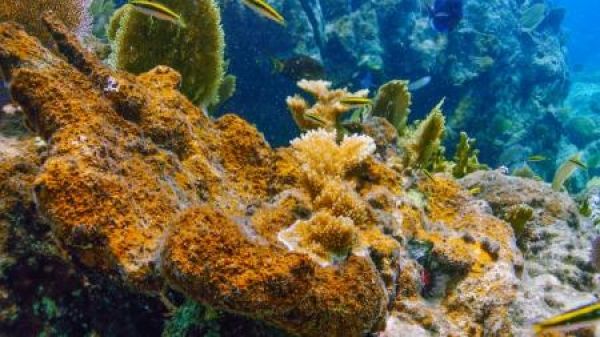A new algal threat is taking advantage of coral’s already precarious situation in the Caribbean and making it even harder for reef ecosystems to grow.
Just-published research in Scientific Reports details how an aggressive, golden-brown, crust-like alga is rapidly overgrowing shallow reefs, taking the place of coral that was damaged by extreme storms and exacerbating the damage caused by ocean acidification, disease, pollution, and bleaching.
For the past four years, the University of Oxford’s Bryan Wilson, Carnegie’s Chen‑Ming Fan, and California State University Northridge’s Peter Edmunds have been studying the biology and ecology of peyssonnelid algal crusts, or PAC, in the U.S. Virgin Islands, which are out-competing coral larvae for limited surface space and then growing over the existing reef architecture, greatly damaging these fragile ecosystems.
Continue reading at Carnegie Institution of Science
Image via Carnegie Institution of Science


